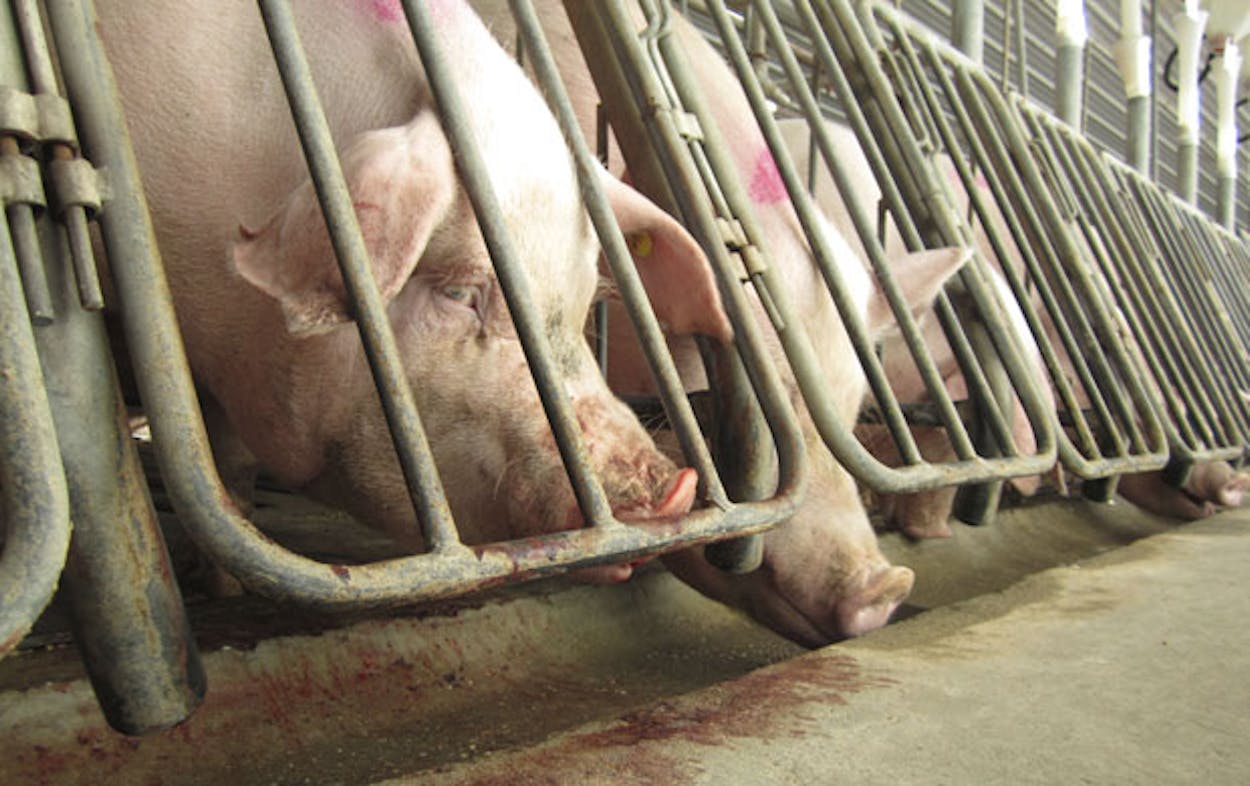In an odd blog post, Mike Barnett, director of publications for the Texas Farm Bureau, took to the organization’s website to applaud Domino’s decision to continue sourcing meat from farms that use gestation crates to house pregnant pigs.
“It’s about time one of the major fast food franchises showed some backbone to the [Humane Society of the United States]. Other fast-food companies—including Burger King, McDonald’s and Wendy’s—have caved to their demands, fearing [the animal rights activist group] will stir public outcry and reprisal if they don’t,” Barnett wrote.
The Humane Society of the United States (HSUS) had suggested the pizza chain study how they could phase out using pork from pigs confined in gestation crates, but the company’s shareholders rejected that idea.
Barnett goes on to say he is “not defending nor condemning their use. I truly don’t know enough about pork production to make that judgment.” He said he’d rely on the experts at the American Veterinary Medical Association, to make that determination. That organization holds that “to address animal welfare in the long term, they suggest retaining advantages of current housing systems while making improvements in design to overcome identified problems.”
This approach, he said, sounds reasonable: “let research and science determine what animal welfare standards should be, not an animal rights activist group who misplays public sentiments not to achieve better animal welfare, but to end food-animal production.”
But Matthew Prescott, policy director of the HSUS, points out his organization is also led by veterinarians, who feel differently about these cages. Prescott told the Dallas Observer‘s City of Ate blog that both farmers and the general public care about these issues.
“American farmers have a long history of innovation and the Texas Farm Bureau and Pork Producers Council refusal to address these issues really sells farmers short,” Prescott said. “I think farmers want to farm. They don’t want to run a factory of widgets lined up in a row. They should take note of that and let farmers be farmers.”
Prescott cited a 2007 study from Iowa State University that showed farmers can cut costs by eleven percent by not confining animals at their piggeries. “There are ways to address these issues that are good for farmers, consumers and the animals themselves,” he told City of Ate‘s Lauren Drewes Daniels.
Here are some heartwarming pictures from Texas Tech of outdoor pork production around the world.







